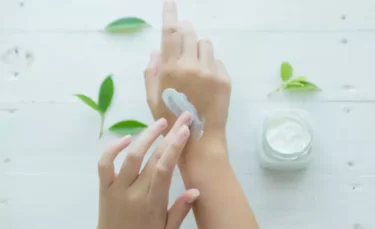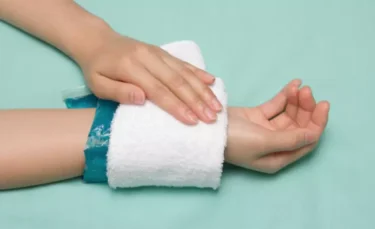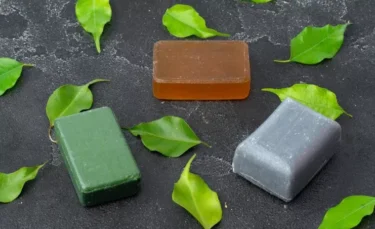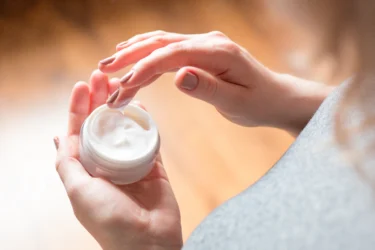Natural Home Remedies for Itchy Skin
By Dr. Raina N. Nahar +2 more

Get,

to manage your symptom
Get your,


4 Cr+ families
benefitted

OTP sent to 9988776655



You’ve successfully subscribed to receive
doctor-approved tips on
Whatsapp

Get ready to feel your best.

Hi There,
Download the PharmEasy App now!!


Register to Avail the Offer
Send OTPBy continuing, you agree with our Privacy Policy and Terms and Conditions

Hi There,
Sign up on PharmEasy now!!
Trusted by 4 crore+ families

OTP sent to 9988776655



You have unlocked 25% off on medicines




Code: NU25
By Dr. Raina N. Nahar +2 more
Table of Contents
Itchy skin, also referred to as pruritus, is a common experience that may occur across all age groups. It is typically described as an uncomfortable sensation that creates the urge to scratch. This sensation can be localised to a specific area or felt more broadly across the body.
Itchy skin is not usually a severe problem. It is generally self-manageable and subsides within a few weeks. However, if your skin becomes itchy, a rash may develop. You may experience severe itching even without any rash or any other symptoms.

Persistent scratching may compromise the skin’s natural barrier, which plays a vital role in protecting the body from external elements. As a result, the skin may become more vulnerable to environmental irritants. Ongoing itching may also contribute to discomfort during daily activities and may even affect rest or sleep1.
Itchy skin due to food allergies can be a medical emergency and the presentation can range from mild to severe. These symptoms may include sneezing, itchy eyes, swelling, rash, hives, stomach cramps, nausea, vomiting, and difficulty in breathing. Seek immediate medical care when you observe these symptoms.
Dr Ashish Bajaj, M.B.B.S, M.D. in Clinical Pharmacology and Toxicology
Itching is usually caused by histamine in the body, which is a chemical substance released in the body during immune reactions1,2. Histamine may cause symptoms of redness and itching which can be associated with skin damage, dryness, rashes, and insect bites.
Itchy skin can be caused by various factors, including1,3:
In addition to the persistent urge to scratch, itchy skin may sometimes be accompanied by other visible signs. These can include:
In certain environments, such as ponds or lakes, some individuals may experience what is commonly referred to as swimmer’s itch. This reaction may occur due to exposure to microscopic organisms in natural water sources, which can lead to mild skin irritation in some cases. It may present as tiny red spots or occasionally with raised areas on the skin.
Itchy skin is usually not a severe problem, and you may be able manage it with some home-based care.

Seasonal changes are often associated with increased skin dryness, which may contribute to the sensation of itchiness in some individuals. Maintaining skin hydration with the regular use of a suitable moisturiser may help support the skin’s natural moisture balance2,3.
Applying moisturiser after a lukewarm shower, ideally within 3 to 5 minutes, may help retain moisture by forming a protective barrier. When selecting a moisturiser, formulations that include ceramides may be beneficial, as ceramides are known to support the skin’s barrier function and help minimise moisture loss.

Using a cold compress, such as a chilled, damp cloth or an ice pack wrapped in a towel, may provide a soothing sensation to areas of skin discomfort3,4. The cooling effect may help reduce the urge to scratch and support overall skin comfort, especially when applied gently to affected areas.

Frequent use of certain soaps and detergents may expose the skin to ingredients that can be harsh or drying. Opting for milder, fragrance-free products may help reduce the likelihood of skin discomfort. Choosing gentler formulations may support the skin’s natural balance and enhance overall comfort5.

Avoid using fabrics like wool and synthetics, as these materials can make your skin itchy6. Opting for cotton clothes and cotton bed sheets will help reduce the symptoms of itchy skin.
Research10 findings suggest that colloidal oat extracts demonstrate direct anti-oxidant and anti-inflammatory activities, which may help explain their supportive role in providing their dermatological benefits when using topical formulations such as colloidal oatmeal skin protectant lotion.
Dr. M.G. Kartheeka, MBBS, MD(Pediatrics)
A well-balanced diet plays an important role in supporting skin health. Some studies11 suggest that low levels of certain nutrients, such as vitamin A, may be associated with skin dryness or discomfort. Foods naturally rich in vitamin A include sweet potatoes, leafy greens, and tomatoes. Topical formulations containing vitamin A derivatives (such as retinoids) are also commonly used in skincare routines, though one should consult a dermatologist before use.
Dr Ashish Bajaj, M.B.B.S, M.D. in Clinical Pharmacology and Toxicology
While some natural remedies are popularly used for skin care, certain ingredients may not be suitable for dry or sensitive skin and could potentially cause discomfort. The following should be used with care or avoided in some cases:

Avoid moisturisers with fragrances (perfumes) and dyes. These perfumes and dyes can cause the skin to become itchy rather than providing relief7,8. Use moisturisers that do not have chemicals like dyes and fragrances.

Although aloe vera is commonly used to soothe sun-exposed skin, some products may contain preservatives or added fragrances to enhance shelf life, which could potentially irritate sensitive skin. Additionally, there is limited scientific evidence supporting its role in managing general skin discomfort7,8.

Apple cider vinegar is acidic and can worsen itching9. Therefore, using vinegar to relieve itchy skin should be avoided.
Also Read: Effective Uses & Benefits of Aloe Vera!
You need to contact your doctor if you notice any of these situations:
Also, consult your doctor if you notice these symptoms in addition to itchy skin:
These symptoms might be a sign that you may require immediate medical help.
Also Read: Wonderful Home Remedies for Skin Tightening
Itchy skin is a common concern that may improve within a few weeks with simple care measures such as regular moisturising and the use of cold compresses. These approaches may help support skin comfort and hydration. However, if the discomfort persists or begins to interfere with your daily life, it is advisable to seek guidance from a healthcare professional.
Also Read: Natural Home Remedies for Swollen Legs
Several simple measures may help support skin comfort and hydration when experiencing mild itchiness. These include applying a moisturiser within 3 to 4 minutes after a lukewarm shower, using a cold compress, choosing mild, fragrance-free soaps and detergents, and wearing soft, breathable fabrics such as cotton. These practices may help maintain the skin’s moisture balance, especially during periods of dryness.
Yes, itchy skin is normal. Everybody experiences itchy skin at some point during their life. However, if the itchiness is occurring all over your body and does not resolve with general self-care, it may be a sign that further evaluation is needed and is advisable to consult a doctor.
Itching is caused by histamine release. Histamine is a chemical substance involved in’ our body’s immune response. Histamine causes the redness, itching, and rashes that you may experience with damaged skin, dry skin, and insect bites. If you are experiencing constant itching that does not go away, you should visit your doctor.
No, apple cider vinegar will not help get rid of itchy skin. The acidic nature of apple cider vinegar is not suitable for itchy skin, and it may even worsen it. Use gentler remedies instead, like a moisturiser and cold press using a damp cloth.
Choosing healthy skincare habits might help you avoid itchy skin. Healthy skin care habits include taking a nutritious diet, drinking plenty of water, moisturising correctly to keep the skin from drying out, washing and bathing with warm water, protecting the skin from excessive damage, and using a good sunscreen. Following these habits will assist you in taking care of your skin and avoiding itchy skin.
Disclaimer: The information provided here is for educational/awareness purposes only and is not intended to be a substitute for medical treatment by a healthcare professional and should not be relied upon to diagnose or treat any medical condition. The reader should consult a registered medical practitioner to determine the appropriateness of the information and before consuming any medication. PharmEasy does not provide any guarantee or warranty (express or implied) regarding the accuracy, adequacy, completeness, legality, reliability or usefulness of the information; and disclaims any liability arising thereof.
Comments

Leave your comment...
You may also like
Comments